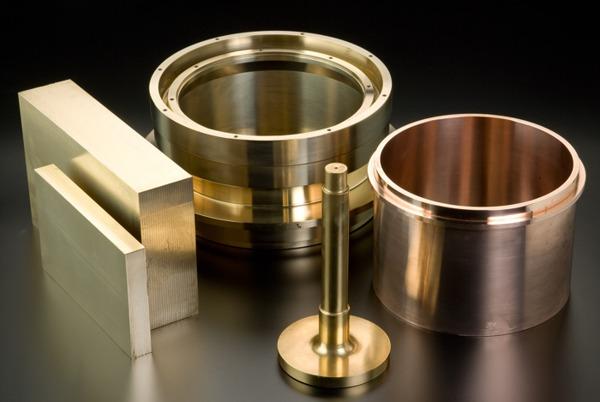Phosphor bronze is an alloy of copper with 0.5–11% of tin and 0.01-0.35% phosphorus. The tin increases the corrosion resistance and strength of the alloy. The phosphorus increases the wear resistance and stiffness of the alloy.
Phosphor bronze is used in the manufacture of several parts in electronic, electrical, information and communications industries. For examples, it is used in machinery parts of automatic controllers, automobiles and others which require electromechanical properties. These parts are used in various products in each of these industrial fields, which make use of information and communication technology, digital electronics technology and others which continue evolving rapidly. Because of its ductility and malleability, phosphor bronze can be used by applying molding processes, such as press punching, bending, drawing, etc. In accordance with the advancement in miniaturization, phosphor bronze is required to obtain high performance and high density of various parts, excellent quality in the process ability with high reliability as a non-magnetic electrical conductive spring material.
Some of the areas where phosphorus bronze wires, strips and rods are commonly used:-
- Fasteners
Fasteners, cotter pins, lock washers.
- Industrial
Truss wire, springs, diaphragms, parts of textile machinery
- Electrical
Relay contacts, rotary switch slides, circuit breaker contacts and fuse clips.
- Electronics
Connectors and transistor terminals
- Automobiles
Electrical parts
- Musical Instruments
Phosphor bronze is preferred over brass because of its greater resilience, leading to broader tonal spectrum and greater sustain. It is used in trumpets, trombones, and reed instruments like saxophones.
- Others
Blades, springs, anti-corrosive chemical machinery parts and diaphragms.

